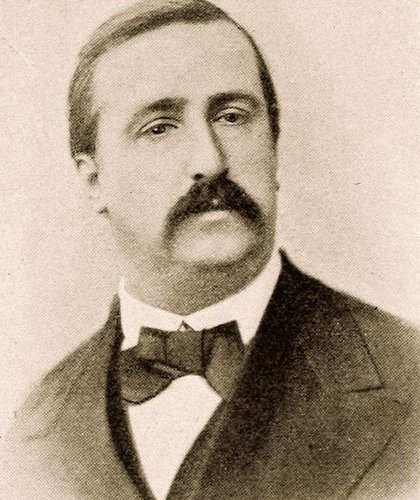
Alexander Porfiryevich Borodin
Alexander Porfiryevich Borodin was member of The Five, or "The Mighty Handful", a group of composers dedicated to producing a specifically Russian music. He was born in Saint Petersburg, the illegitimate son of a prince. He received a good education, including piano lessons, but it was chemistry in which he specialised, and he did not receive any formal lessons in composition until 1863, when he was taught by Balakirev. In 1869 Balakirev conducted Borodin's first symphony, and in the same year, Borodin started on his second symphony. This new symphony was a failure at its premiere, but Liszt arranged a performance of it in Germany in 1880 and this brought Borodin some fame outside Russia. Also in 1869, Borodin began work on his opera, Prince Igor, his most significant piece. Borodin left the opera incomplete at his death, composition being slowed by his heavy workload as a chemist. It was completed posthumously by Rimsky-Korsakov and Glazunov. Despite being recognised as an accomplished composer, Borodin always earned a living as a chemist, and gained great respect in that field also, being particularly noted for his work on aldehydes. As a result, he was not as prolific a composer as many of his contemporaries, but he did write the popular symphonic poem In the Steppes of Central Asia, two string quartets and a handful of songs and piano pieces. He also started work on a third symphony, but that, also, was incomplete at his death.